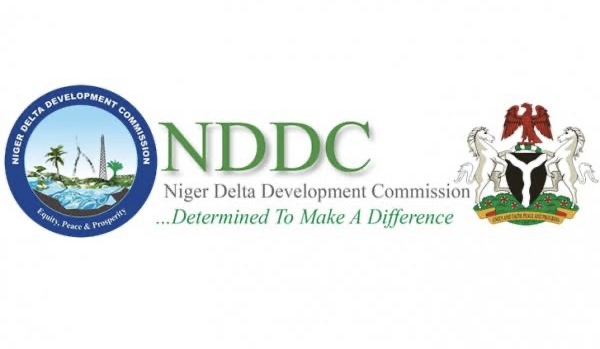Day Buhari visited his psychiatrist in London

For obvious reasons, the shrink scheduled Buhari’s appointment as the last one for the day. Buhari and his shrink had agreed that there should be no rush since this was his first visit in more than seven years. More so, Buhari made it clear in his phone call that he had very urgent matters to discuss. The 81-year-old shrink had been in practice for over 45 years and had treated Buhari since 1976 when Buhari was Nigeria’s petroleum minister.
In dark glasses and a long grey light jacket, Buhari sneaked in from a back entrance door reserved for staff and special guests. The old Victorian building on the West End of London had no mark outside to indicate the services rendered there. At the reception, the shrink personally welcomed Buhari. He took Buhari’s jacket, hung it in the closet, and led him into his private office, walking with an unsteady gait. He had developed a mini-hunched back since the last time Buhari saw him. Still, he kept showing up at work even though his son was ready to inherit the practice and carry on with the family tradition that his grandfather started.
The two exchanged very few pleasantries as Buhari quickly settled at the patient’s sofa, placed his legs on a footstool. The shrink sitting on his high leather chair towered above him.
“Do you want a toothpick, Mr. President?” the shrink asked, offering a box of synthetic plastic toothpicks. When Buhari used to come frequently, it was a long-running joke between them. It was supposed to make Buhari smile, but the president didn’t crack a smile. It made the shrink put off informing him that he was retiring in a few days.
“You look younger than you were the last time I saw you,” the shrink said, instead. “I could see that you are taking good care of your physical health. Like I say to all my patients, mental health is equally as important as physical health, if not more.”
Buhari had a total deadpan look on his face.
“What is wrong with me?” Buhari started.
“That is what we are going to find out,” the shrink said, settling back to his chair. “We can start by you telling me what you are thinking and feeling.”
“I feel as if the world is caving in around me,” Buhari stated. “My friend, the Archbishop of Canterbury, tells me he is worried about me. Since I last saw you, I feel differently about myself.”
The shrink remembered that it was the then oil company executive, Justin Welby, who brought Muhammadu Buhari to him as a patient in the 70s. He scanned through Buhari’s file from his first visit and noticed the similarities in the words he used to describe how he felt today.
“What do you think you should do?” the shrink asked.
“Kill myself, I suppose,” Buhari said.
“Are you having thoughts about killing yourself?” the shrink asked him.
“No,” Buhari answered without blinking.
“Are you having thoughts about killing your country?” the shrink asked, this time looking straight into Buhari’s eyes.
Buhari took his eyeglasses off and placed them on a side table. His fingers trembled like that of someone experiencing an initial onset of Parkinson syndrome.
“Justin thinks that is exactly what I am doing, killing my country,” Buhari said.
Flashed on Buhari’s face was a sense of dejection. If anyone should understand him, it was Justin Welby, the Archbishop of Canterbury. Buhari had known him since the 1970s when Buhari was Nigeria’s oil minister while Justin Webly was an executive of Elf Aquitaine, a Paris-based French oil company. While Buhari was head of state in the 1980s, Justin was the treasurer of Enterprise Oil PLC, an oil exploration group carrying out projects in West Africa. In every step, Justin had been Buhari’s only white friend.
“Why do you think the Archbishop feels that way?” the shrink asked.
“It is not just him,” Buhari said. “People who have no reason to flatter me say to me that I am underperforming and that the country that I fought to keep as one is crumbling under my watch.”
“Do you feel the same way?” the shrink asked.
“I don’t know what I feel,” Buhari said. “That is why I am here to see you.”
The shrink made Buhari tell him what was going on in Nigeria. As Buhari spoke, he wrote furiously in his notebook. In Buhari’s list of concerns were the escalating secessionist movements in the south, the increasing rejection of his Fulani people across the country, the Boko Haram insurgency, and the expanding banditry across the north. He said nothing about Aisha, his wife, or his growing ambivalence about marrying another wife. She was the main subject during his last visit in 2014.
“Of all these problems, which one do you think will lessen your burden if removed?”
“The Biafrans, by a wide margin,” Buhari said.
“So you care so much about them?”
“I hate their guts.”
“Why?”
“What do you mean why?”
“Are they the ones doing all the killings that I hear about in your country?”
“What can’t you understand?” Buhari said, his voice rising. “I spent three years of my life fighting the parents and grandparents of these small boys. I lost very good friends in that war.”
The shrink rolled his eyes, having heard it all before from Buhari. In his mind, he sensed an undiagnosed and untreated post-traumatic stress disorder (PTSD). For someone with the disorder to be saddled with the responsibility of understanding others equally traumatised would be asking too much. The shrink pondered how he would let this patient know that forced treatment can disempower and re-traumatise groups like the Biafran with prior exposure to trauma.
“Do you feel you have handled the situation well?” the shrink asked.
“There is nothing there to handle,” Buhari said. “The Biafrans must be vanquished. They are the ones that have instigated a wider demand for secession in the south. The Yoruba people have even joined them. If the military had listened to me, we would have dealt with them a few years ago. Now, they have constituted themselves into a bigger nuisance.”
Buhari picked up his glasses and flipped them on over his eyes to hide some facial expressions from the shrink.
“I take it that the crisis has escalated to an emergency because you deployed ineffective interventions that have resulted in decomposition in daily functioning,” the shrink said. He took a deep breath before continuing. “You probably escalated matters to an extreme level, narrowing the options for effective intervention considerably.”
“I don’t understand one thing you just said,” Buhari responded.
“How has what you’ve been doing working for you?” the shrink asked.
“If things were working, would I have come to see you?” Buhari asked. Then, he whispered to himself, “One thing I know is that I cannot stand those Biafrans.”
Though he hid his eyes behind the glasses, the shrink noticed from the movement of his neck that his eyes were focused away from him and straight on the books on his shelves.
“Can you stand the Fulani herdsmen?” the shrink asked.
“What do you mean?” Buhari said. “They are my people.”
“Have you ever accepted the Biafrans emotions as legitimate and reflected back to them some shared understanding of their perspective on the situation?” the shrink asked.
“Like what?” Buhari asked.
“I don’t know the subject matter well,” the shrink said. “But non-threatening body language, listening with empathy, responding to some aspects of their concerns with agreement or understanding, making a clear request in a non-confrontational manner. These are some ways to make them feel heard and de-escalate matters.”
“I don’t agree with them on anything,” Buhari said.
“I see.”
“Please tell me, what is there to agree with?” Buhari said. “They are a bunch of miscreants whose elders have refused to discipline. That is the problem.”
“I take it that you want to re-establish control?”
“Yes.”
“Have you defined the crisis?”
“There is nothing to define,” Buhari argued. “This is just the result of a job that we did not finish in the 60s. The stupid “no victor, no vanquish” is to be blamed for this lingering irritation.”
The shrink saw that Buhari was again defaulting to the most restrictive choice of intervention that had not worked for him. He wished he could achieve grounding with patient Buhari to reduce his distress. He wished he could quote Ralph Waldo Emerson for him but doubted if Buhari would be able to process it.
But the shrink said it anyway.
“Ralph Waldo Emerson said that, “Most of the shadows of this life are caused by standing in one’s own sunshine.”
“My friend, I came to see you, not Ralph Waldo,” Buhari said. “I came to hear what you have to say about my condition.”
“Does any of these crises make you feel threatened on a personal level?” the shrink asked.
“No,” Buhari said.
“Do you have a sense of helplessness?”
“No.”
“So what troubles you most?”
“The kind of country I will be leaving behind in two years.”
“Does it really matter?”
“Yes, it does.”
“No matter what you leave behind, the country will move on,” the shrink said. “Don’t you think so?”
“I am bothered about how I will be perceived?” Buhari said.
“By whom?” the shrink asked. “The Biafrans?”
“Please don’t bring that name up again in our conversation,” Buhari warned.
“Will you rather prefer that we talk about the Fulani?” the shrink asked.
“Suit yourself.”
“Do you watch the ongoing trial of Derek Chauvin?”
“Who is that?”
“The man who killed George Floyd?”
“Who is that?”
“The black man killed by police in Minnesota, USA.”
“Not really,” Buhari said. “I have a country to run, my friend. But I see bits and pieces on CNN. Why do you ask?”
“I wanted to know if you have had any Fulani herdsman tried in court for killing farmers in villages in your country,” the shrink said.
“You have no idea what you are talking about,” Buhari fumed. “Fulani herdsmen do not kill. If they have any need to kill, they must be revenging previous killing others wrecked on them. Fulani herdsmen carry arrows and no guns. If they have guns, they must be from Libya and other African countries. I have told other Nigerians to learn to live with Fulani men as their fellow countrymen. I don’t know what the problem is with those Nigerians. The grazing routes have been there before your people came down to Africa and created Nigeria. You know, I tell you, it is the fault of the Biafrans. They poisoned the hearts of Nigerians against innocent Fulani people. I blame climate change for everything. But you would like to know that before I left, I told the police to shoot anyone seen with an AK-47.”
“Are you hearing what you are saying?” the shrink asked.
“What are you talking about?” Buhari asked.
“Something tells me that I am not getting the whole story from you,” the shrink said. “It is either that the story is not whole or that the truth is not whole.”
“Forget you,” Buhari said.
The shrink chuckled.
“I don’t know what is funny to you,” Buhari said.
“What you said would have been more effective and cathartic if you had said what you felt the way young people say it now,” the shrink said.
“Like how?”
“Fuck you, doctor.”
It was Buhari’s turn to chuckle.
“I am not sure you know this about your friend,” the shrink said.
“Which friend?” Buhari asked.
“Justin Welby.”
“What about him?”
“In 2016, he found out that the person he thought was his father was not his father.”
“What does that have to do with the conversation we are having?”
“Justin was born almost nine months after his mother, Jane Portal married Gavin Welby, a son of a German-Jewish immigrant. His mother was a personal secretary to Sir Winston Churchill. Before her marriage, she had a brief relationship with Churchill’s private secretary, Sir Anthony Browne.”
“What is your point in this long story?” Buhari asked impatiently. “Hurry up, I don’t have all day.”
“Justin did not doubt that Gavin Welby was his biological father until 2016 when a paternity test showed that he was Browne’s son.”
“And your point is what?” Buhari asked. “I have a country to run.”
“Justin, the one that is today the Archbishop of Canterbury, grew up in what he described as a messy home. His mother and supposed father, Gavin, were alcoholics. They divorced when Justin was just three years old.”
“Ok,” Buhari said. “And the moral of the story is what? That I am the leader of a messy country? Or is it that the person that I thought was my father was not my father? What is it? Are you saying that my father is a Biafran? Banza!”
“What did you say?” the shrink asked.
“Bai kome,” Buhari said. “It doesn’t matter.”
“I will tell you the moral of the story,” the shrink said.
“Please do,” Buhari said. “I need to go.”
“It takes great courage not to judge others by our standard,” the shrink said.
Buhari stood up, looking around for his jacket. The shrink reminded him that it was in the closet at the reception.
“How much do I owe you?” Buhari asked the shrink as he made his way out of the office.
“Consider it as part of my contribution to Nigeria’s nation-building,” the shrink said.
As he opened the door for Buhari, he asked, “When next will I see you?”
“When I come for Queen Elizabeth’s funeral,” Buhari said.
The shrink was not sure if he meant Prince Philip’s funeral or Queen Elizabeth’s funeral. He did not care anyway because he was ready to retire in a few days.
When he got back into his office, he opened Buhari’s file and wrote what he was sure would be his final note in Buhari’s medical file, “Untreated PTSD is a bitch!”
As soon as the shrink closed the file, I opened it and tried to erase the word bitch. I finished one eraser, blew air on the sheet of paper to disperse tiny eraser particles, but the word did not disappear. While trying to grab another eraser from his bookshelf, I mistakenly knocked off a framed picture of the shrink and Prime Minister John Major. I swerved to catch the falling photograph, and I almost fell off my bed.
Needless to say that I woke up.
We have recently deactivated our website's comment provider in favour of other channels of distribution and commentary. We encourage you to join the conversation on our stories via our Facebook, Twitter and other social media pages.
More from Peoples Gazette

Politics
Katsina youths pledge to deliver over 2 million votes to Atiku
“Katsina State is Atiku’s political base because it is his second home.”

Education
Argentines protest budget cuts to public universities
The protestors are being joined by professors and students with their union leaders.

Sport
EPL: Everton hand Liverpool major upset in title race; Bruno Fernandes’ brace helps Man United return to winning ways
If City win the two games, they will go top of the table.

Heading 3
FRSC collaborates with judiciary for speedy trial of drivers involved in road crashes
“All drivers and vehicle owners who caused crashes on the roads would definitely face the wrath of the law.”

States
NDDC to engage youths in internship programmes
A new tech programme is set to be inaugurated.

Africa
Tanzania shuts down five hydro stations to reduce excess power on national grid
This is the first time the country will be shutting its hydroelectric stations over excess production.

Abuja
Fuel Scarcity: Motorists lament as long queues resurface in FCT
They appealed to the federal government to resolve whatever the issues were.








